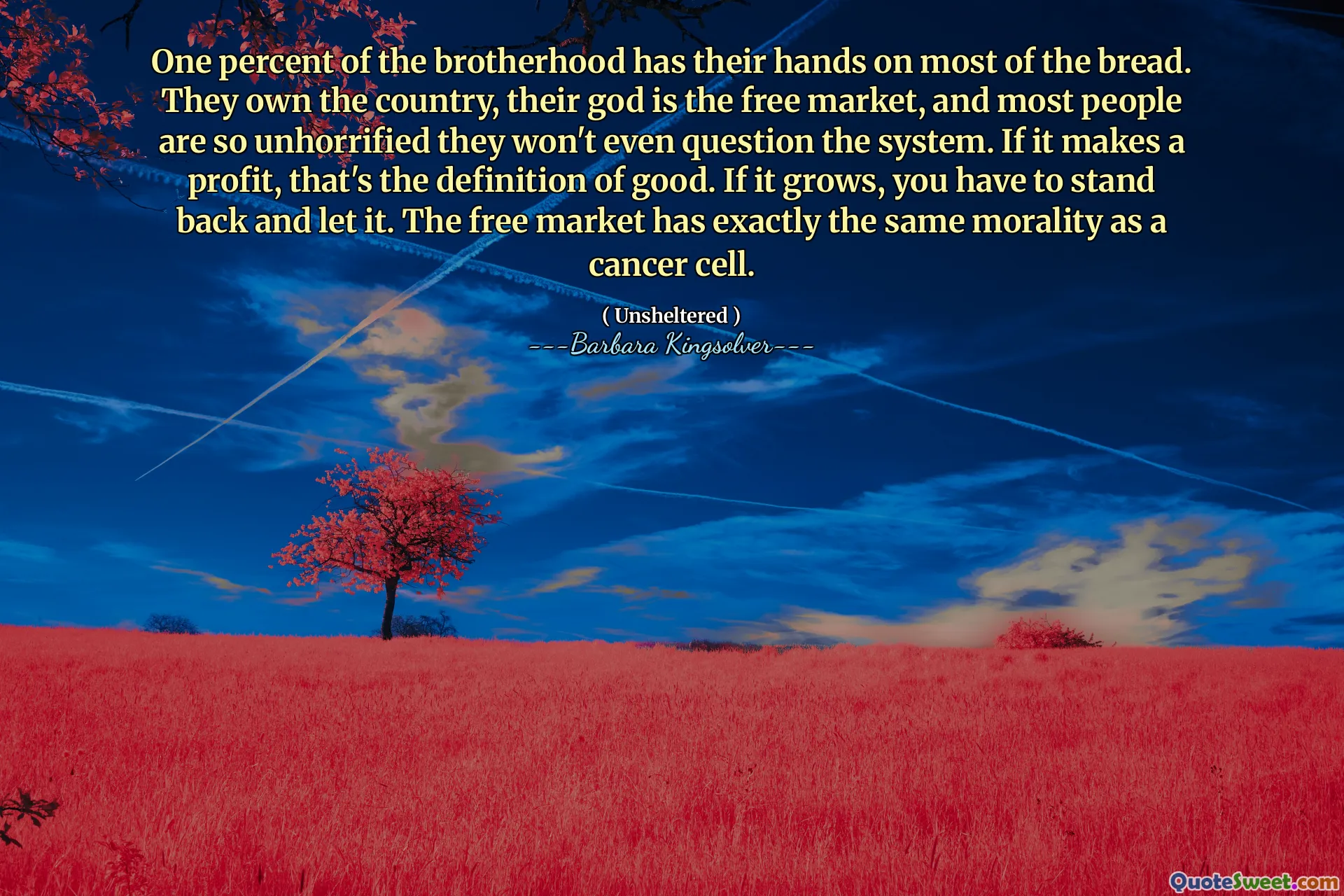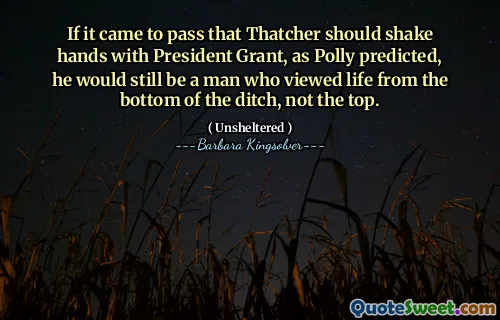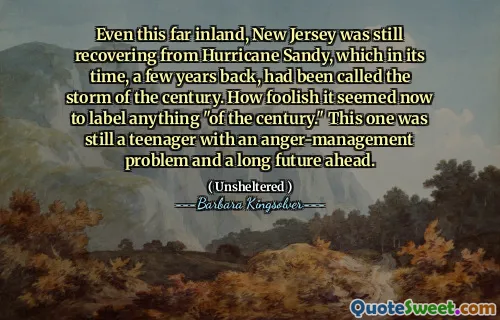
One percent of the brotherhood has their hands on most of the bread. They own the country, their god is the free market, and most people are so unhorrified they won't even question the system. If it makes a profit, that's the definition of good. If it grows, you have to stand back and let it. The free market has exactly the same morality as a cancer cell.
Barbara Kingsolver's novel "Unsheltered" critiques the concentration of wealth and power within a small elite. She suggests that a mere one percent of the population controls a significant majority of resources, shaping the country's priorities. This elite promotes the ideology of the free market, which, according to Kingsolver, has become a dominant belief system that many accept without question. Profitability is revered, often at the expense of moral and ethical considerations.
In her metaphor, Kingsolver compares the free market to a cancer cell, highlighting its aggressive and self-serving nature. Just as cancer prioritizes its own growth without regard for the host, the unchecked free market operates without consideration for the broader societal impacts. This perspective encourages readers to reflect on the moral implications of prioritizing profit above all else, challenging the notion that economic growth is inherently good.











